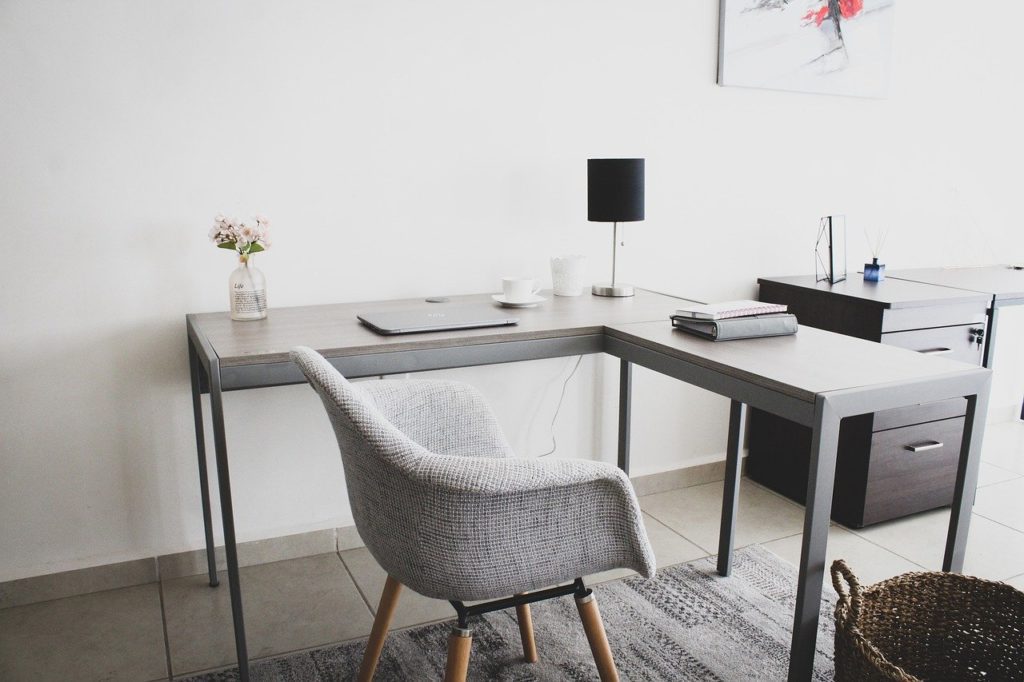


Working from home: what options do homeowners have for improvements, and maintaining work/life balance
Are we working from home? Or living at work? With so many of us struggling to find the right balance, we took a look at how you can manage your working life, and set up your home to maximise productivity and relaxation.
A few weeks ago, we attended the Mortgage and Protection Roadshow. Typically held in a swanky conference centre somewhere in the city, it’s an opportunity to meet face-to-face with peers, to learn about the new trends in the industry, and to have a day out of the office.
Of course, it was very different this year. Keynote speeches were delivered over Zoom, coffee breaks were a solitary affair, and the closing drinks reception was replaced by hurriedly checking up on email.
Far from an event that punctuates our usual working routine, allowing for personal and professional development, it just felt like another day in front of the laptop.
One of the speakers asked us a question that perfectly distilled the average experience of today’s office worker.
‘Are you working from home? Or living at work?’
For many of us, the novelty of home working was new at first. A study of UK workers conducted by YouGov in September 2020, found that 68% of UK workers had never worked from home prior to the Covid-19 pandemic. That same survey found that just under half (48%) of respondents are now working homeworkers in some shape or form.
For the uninitiated, we assumed that working from home would be a doddle. No commute, long walks with the dog over lunch, replying to emails in bed.
The reality hasn’t proven to be quite so idyllic. Our personal and professional lives have become inexorably intertwined. Homeschooling and chores have dented our productivity, while an ‘always-on’ culture has left many people reaching for their computers well outside of office hours.
Research conducted by LinkedIn and The Mental Health Foundation found that the average UK employee worked 28 hours of overtime in April 2020. This in turn, has led to line managers reporting higher cases of burnout, both within themselves and their reports.
Despite these worrying statistics, the majority of UK workers (57%) want to adopt a ‘hybrid’ working model at the conclusion of the pandemic, splitting time between their home and the office. How can these workers maintain a healthy work/life balance in this new paradigm?
Maintaining work/life balance
While there have been inevitable teething problems, the fact remains that working from home offers a great opportunity for a healthy work/life balance. Here are some key tips for finding equilibrium in your day-to-day:
- Exercise: Filling your lungs with some fresh air, or stretching your body with some lunchtime yoga is a great way to break up the day, and relieve stress. Moving for 30-60 minutes at least three times a week, has significant benefits for your health, motivation and resilience.
- Creating space for work: While some of us will be blessed with a home office, many workers will be scrabbling around to find space to work. Rather than slouching over a device on the sofa, try and create some space that is just for productivity. Even if it’s just a desk and a suitable chair for work, delineating this space will help you save other areas for relaxation.
- Switch off: As much as we like to badmouth the dreaded ‘commute’, our journeys in and out of work provided us with a clearly defined start and stop to the working day. Try and recreate that feeling by turning off your work devices, and not checking email.
- Stick to a routine: Furthemore, sticking to a routine will help you carve out time for work and for relaxation. While it may be tempting to stay in bed for that extra half hour, it could have a knock-on-effect that means you’re working long into the evening.
Are you claiming tax-relief?
Further to the question of work/life balance, many homeowners will be noticing their bills rising. The bitter cold and dark days, coupled with restrictions, has understandably seen bills rocket. The third lockdown saw arrears with gas and energy providers increase by 40%. What can homeowners do to soften the blow of increased utilities costs?
The self-employed will be well-versed in this. Sole traders or owners of limited companies that work primarily from home can claim their utilities bills back as expenses, either at a flat rate per month, or as a percentage based on the usage of their property.
For example, if you live in a flat with five rooms, and use one of those rooms for work, you can claim up to a fifth of your energy and heating costs as a business expense. Speak to your accountant to find out how you can save more on these expenditures.
For employees on PAYE, claiming tax-relief might be a completely new experience. The government announced in June 2020, that PAYE employees can claim back up to £6 per week in tax relief, to cover the costs of working from home. This covers costs including heating, metered water bills, home contents insurance, business calls or a new broadband connection.
This relief will be calculated on the current rate of tax you’re paying. For example, say you currently pay 20% income tax, you will be granted relief on 20% of that £6, equalling £1.20 per week.
Options for homeowners and first time buyers
Government interventions have also led to a spate of activity in the property market, despite the economic downturn.
The Stamp Duty holiday, meaning the tax was only paid on properties costing more than £500,000, rather than £300,000, has saved first-time buyers as much as £10,000. This freeze is due to end in March 2021, but could be extended, as recent research suggests it could save buyers a further £1bn across the country. Either way, time is short for people looking to get their foot on the ladder, and enjoy their own space to both live and work.
For those that are looking to upsize, an extension to the holiday could also be of benefit. Not only does the Stamp Duty holiday allow for potential savings, but an influx of buyers into the market offers a great opportunity to sell before an uncertain future for the market and the economy in general.
If moving isn’t on the cards, but you need that little bit of extra space, releasing equity on your home could be the answer. Improvement projects such as a garden office, or an extension, offer a solution to your home working needs, and add value to your home.




